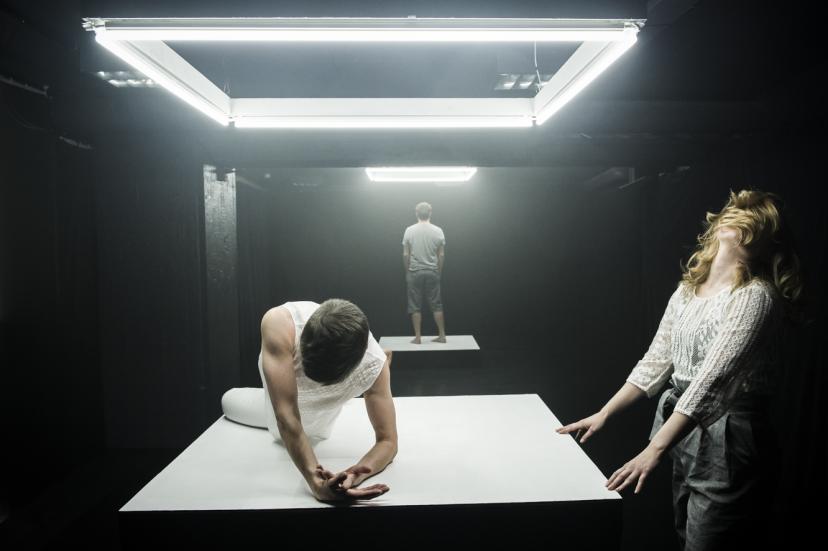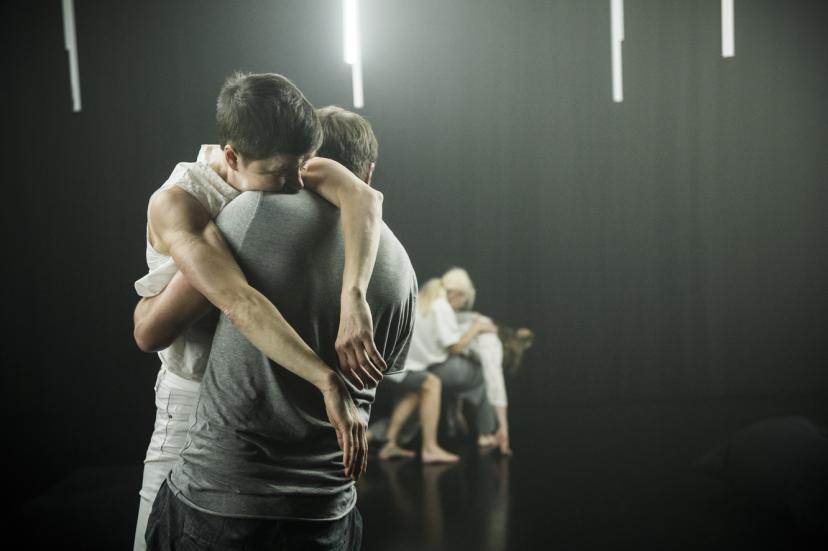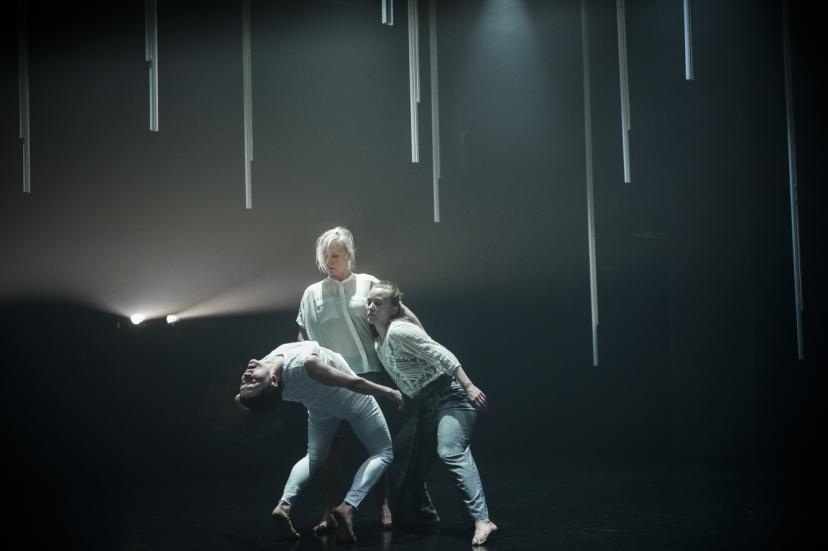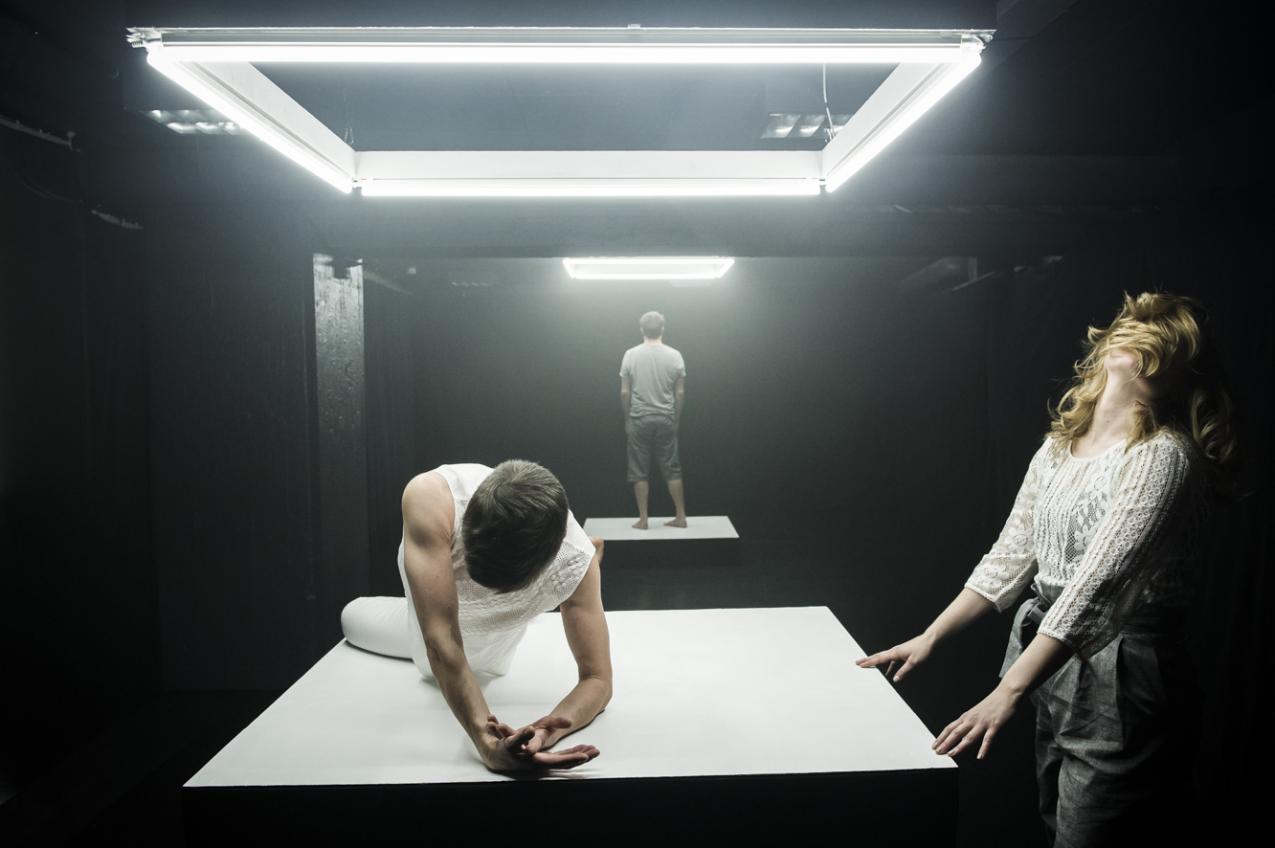Choreographer Mikko Orpana's new production I AM IN YOUR MIND explores mirror neurons and physical intersubjectivity between people – in other words the ability to share emotions and experiences that is crucial for all social interaction between human beings.
According to neurologist Vittorio Gallese, mirror neurons are activated by both participating in activity and watching it. Because of this, we constantly communicate with everything around us on a neural level.
There are different ways of perceiving other human beings, yet only some of them facilitate a feeling of belonging together, which I define here with the concept of intentional adjustment.
I AM IN YOUR MIND experiments with a physical, dance-based approach to this intentional, objective-oriented adjustment, reaching for a world where our minds melt together.
Our thoughts, as far as they can be said to be separate from our bodies, might not be as individual and secret as we might like to think. My mind constantly communicates with your mind and your body. When you move, I know what you are feeling, just like you can feel the tension in my body.
The performance taps into discoveries made in the research of mirror neurons and mirroring systems of human beings and explores how the systems make it possible to transfer dance movement, touch and emotions between individuals and what the limits are.
Riitta Hari, an long-time Finnish researcher of mirroring systems, and neurologist Lauri Nummenmaa write about emotions that touch us:
Other people form the most important part of our environment. Even though our brain is separate from the brains of other people, we can often understand each other amazingly well.
It has been found through the study of the mirroring mechanisms of the human brain that automatic "internalisation" of gestures, postures and movements of other people through automatic activation of the corresponding regions of the brain helps us understand their intentions and objectives.
When we see another person touched physically, a part of the cerebral cortex of our brain reacts like we were touched.
This kind of communication is poetic, abstract and, in terms of the meanings it carries, relatively unrestricted everyday interaction, yet decisive for the development of a fundamental sense of safety and an understanding of other human beings. In a world that emphasizes individualism and anthropocentrism so strongly, it is also healthy to feel and understand the connections between us and the world around us, and how we constitute a part of that world.
Sources:
Gallese, Vittorio. 2008. Empathy, Embodied Simulation, and the Brain: Commentary on Aragno and Zepf/Hartmann. Journal of the American Psychoanalytic association 56.
Ylikangas, Mikko (edit.). 2016. Mielen salat. Hari, Riitta ja Nummenmaa, Lauri. Koskettavat tunteet. Gaudeamus.
- - -
The post-performance discussion on October 3 will also address the topic of academic research and how it affects artistic work. Orpana is currently working on his PhD thesis at the University of Arts Helsinki. The discussion will be joined by professor Leena Rouhiainen from the Performing Arts Research Centre / UniArts.
Premiere
I AM IN YOUR MIND
Choreography Mikko Orpana
Dancers Laura Faarinen, Mirva Mäkinen, Mikko Orpana, Katri Soini
Lighting and video design Tiiti Hynninen
Sound design and music Antti Nykyri
Choreographer's assistant Anni Rissanen
Production Zodiak – Center for New Dance, Mikko Orpana
Photos Uupi Tirronen
Pre-talk on 29.9. at 18 15–18:45
Post-performance discussion on 3.10.
Duration 60 min
Tickets 27,50/20,50/16,50 €
ZODIAK STAGE



